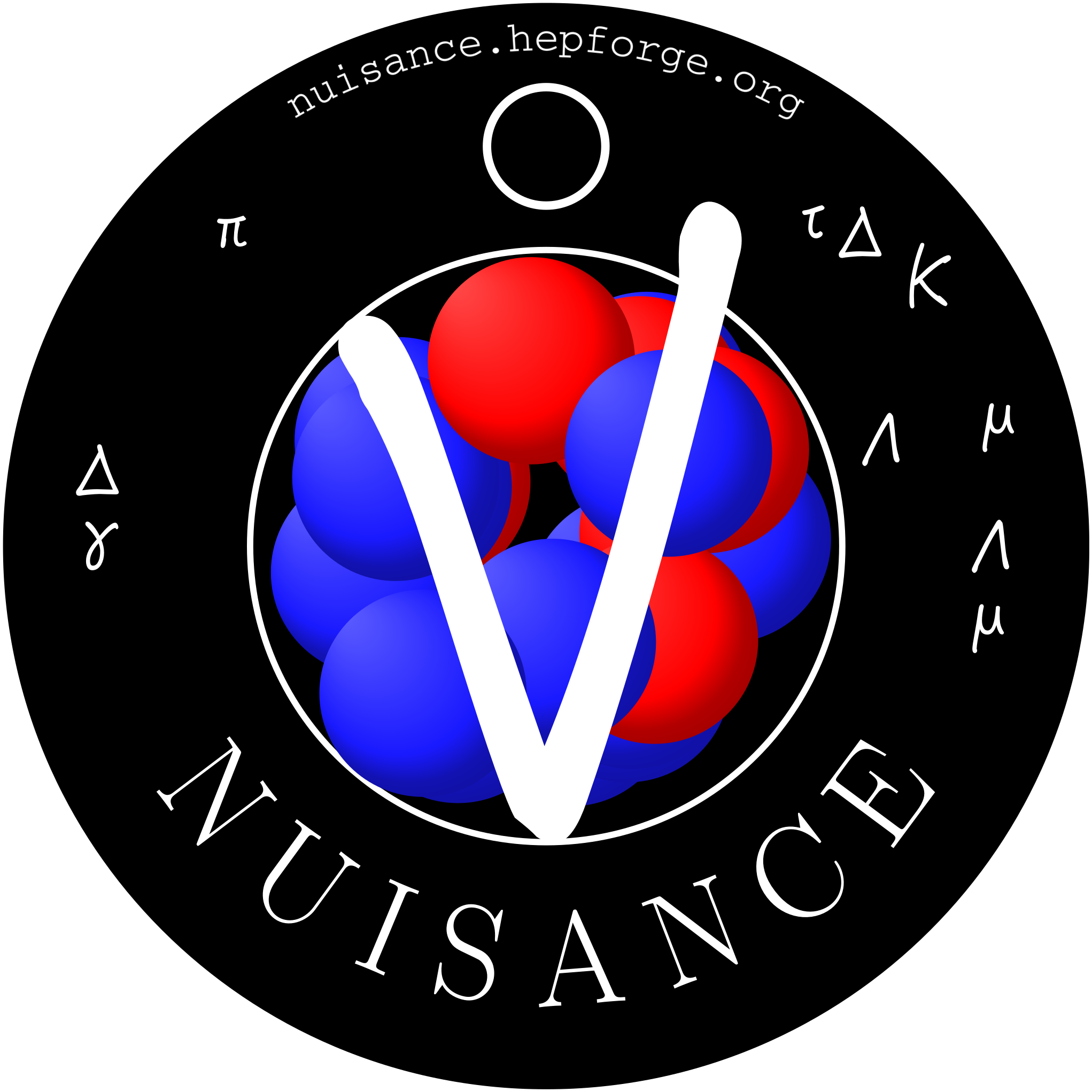| Version 5 (modified by , 8 years ago) (diff) |
|---|
[ PAGE BEING BUILT ]
Usage Examples
This wiki outlines some potential usages for NUISANCE.
If you haven't yet build the framework, do so here.
The card file
NUISANCE requires the user providing an input card file which species:
- The data sample(s) to compare to
- The generators and their file locations
- Any additional parameters that a sample might take (optional)
- A normalisation factor to apply uniformly to the MC (optional)
When the generator provides a reweighting interface, systematic parameters to reweight or fit can be provided. To do this we need:
- Name of the systematic parameter in the reweighting engine
- Current value of the parameter
- Minimum value of the parameter (optional)
- Maximum value of the parameter (optional)
- Starting value of the parameter (optional)
- Whether we
FIXorFREEthe parameter
All NUISANCE executables run based on the card file, except for when producing generator flat trees.
Comparisons
Tuning
Use the nuisfit executable for tuning.
The default fitter is ROOT's MIGRAD algorithm with hard limits. The executable accepts -f to change this behaviour.
The accepted arguments are specified in src/Routines/MinimizerRoutines.cxx and NUISANCE accepts all the currently implemented minimisations in ROOT::Minimizer.
fAllowedRoutines = ("Migrad,Simplex,Combined,"
"Brute,Fumili,ConjugateFR," "ConjugatePR,BFGS,BFGS2," "SteepDesc?,GSLSimAn,FixAtLim?,FixAtLimBreak?" "Chi2Scan1D,Chi2Scan2D,Contours,ErrorBands?");
Separating options with commas runs them in order, e.g. -f Simplex,Combined will first run a Simplex minimisation and then propagate those results to a Combined minimisation.
